Dental Implants

The goal of modern dentistry is to restore the patient to normal profile, function, comfort, esthetics, speech, and health regardless of any disease or injury to the stomatognathic system. A dental implant is one of the treatments to replace missing teeth. Their use in the treatment of complete and partial edentulism has become an integral part of dentistry. Dental implants have a number of advantages over conventional fixed partial denture.
- A high success rate (above 97% for 10 years)
- A decreased risk of caries and endodontic problems of adjacent teeth
- Improved maintenance of bone in edentulous site
- Restores the ability to chew
- Restores cosmetic appearance
- Improves quality of life
Our Gallery
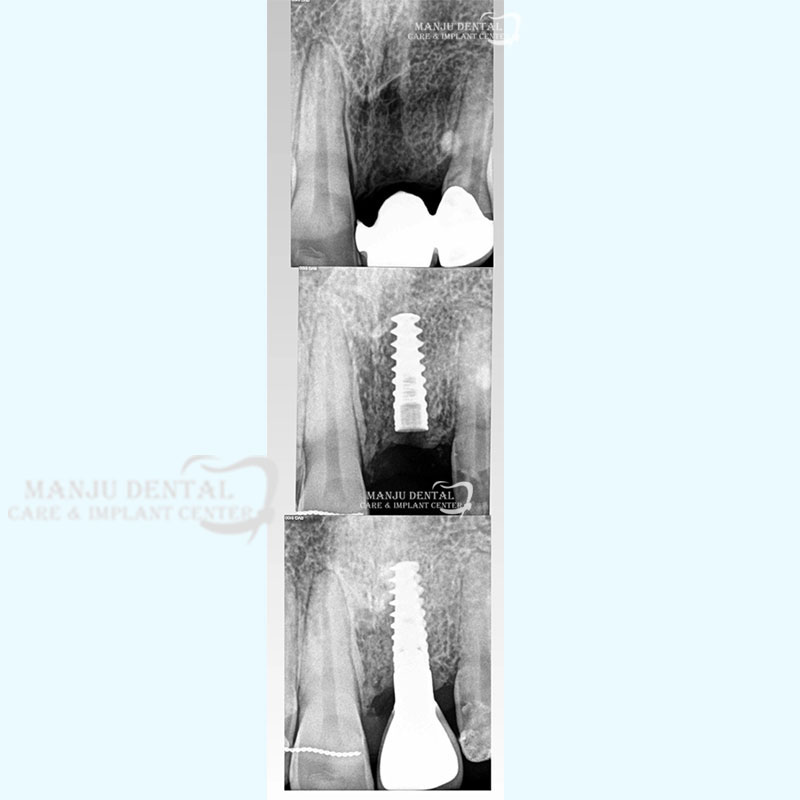
Dental implant the gold standard for tooth replacement
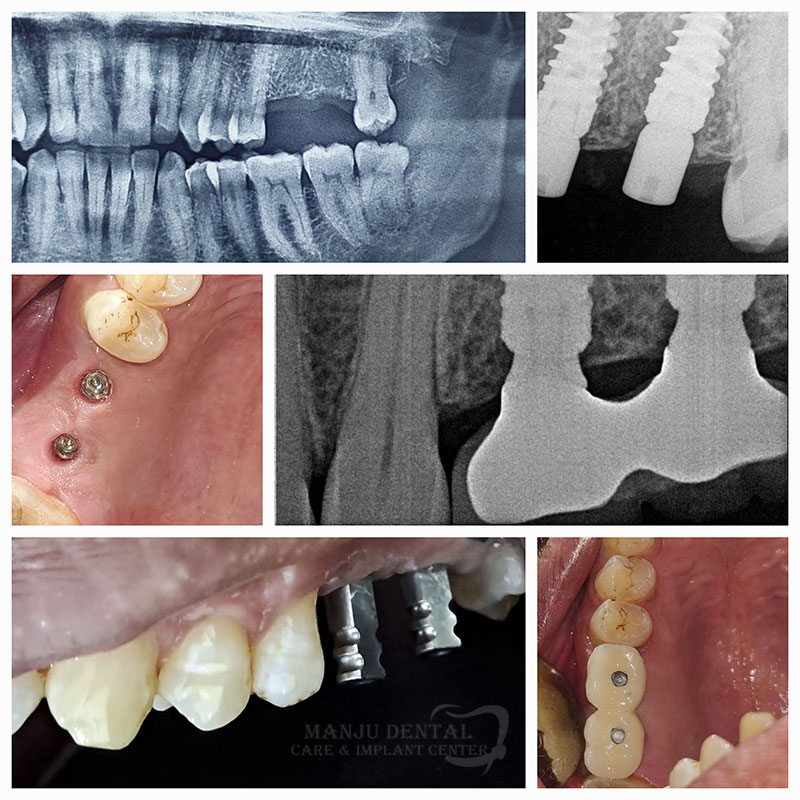
Osteointegrated implant achieving perfect function and form
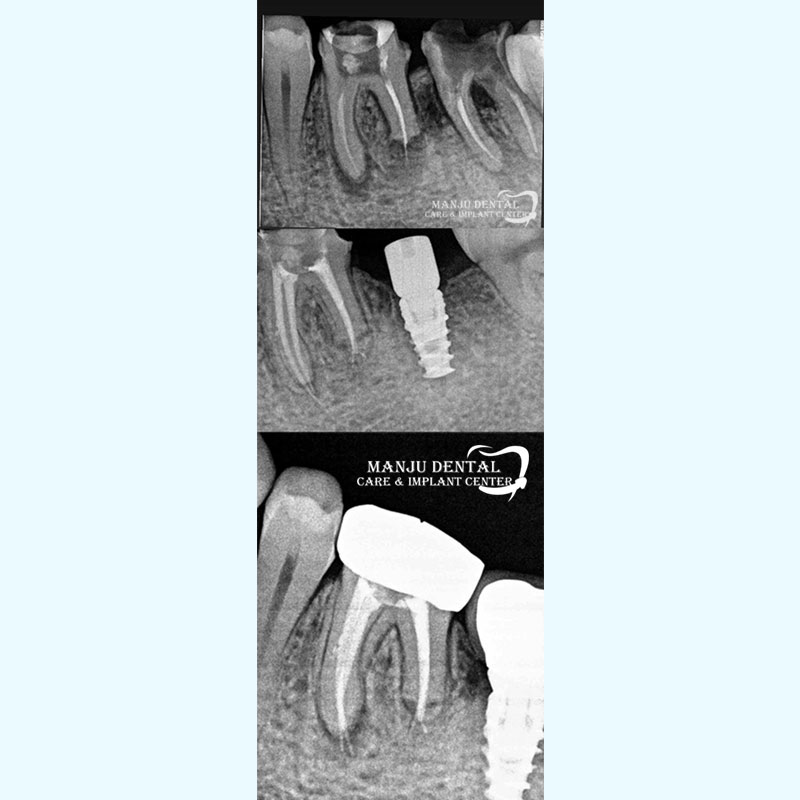
Full Spectrum Dental Care Extraction of Non Restorable Tooth, Implant Placement and Re-Rct of Adjacent Tooth
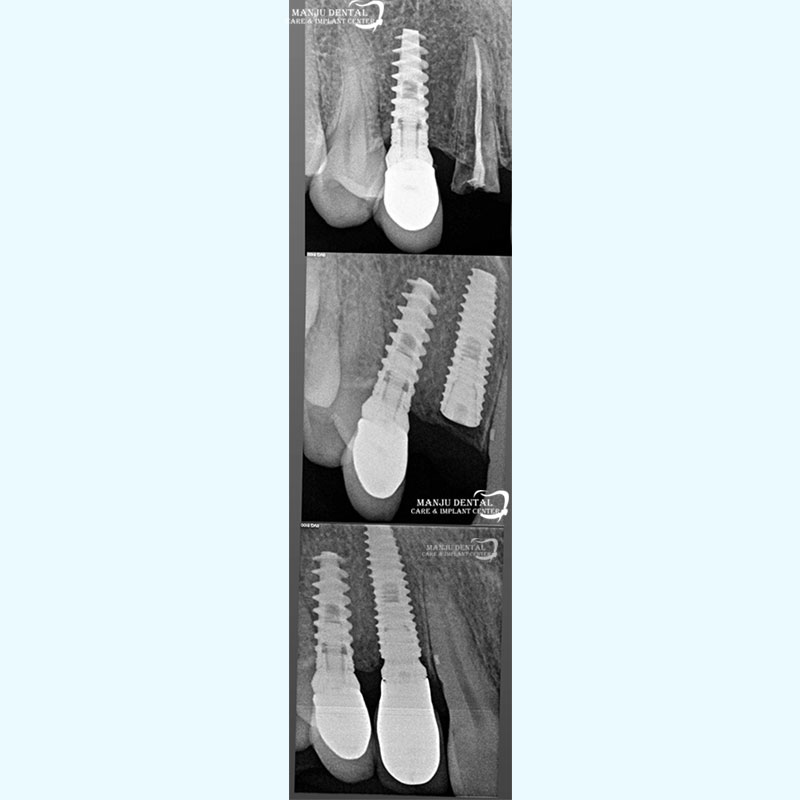
Precise Implant Placement For Long Term Stability And Natural Esthetics
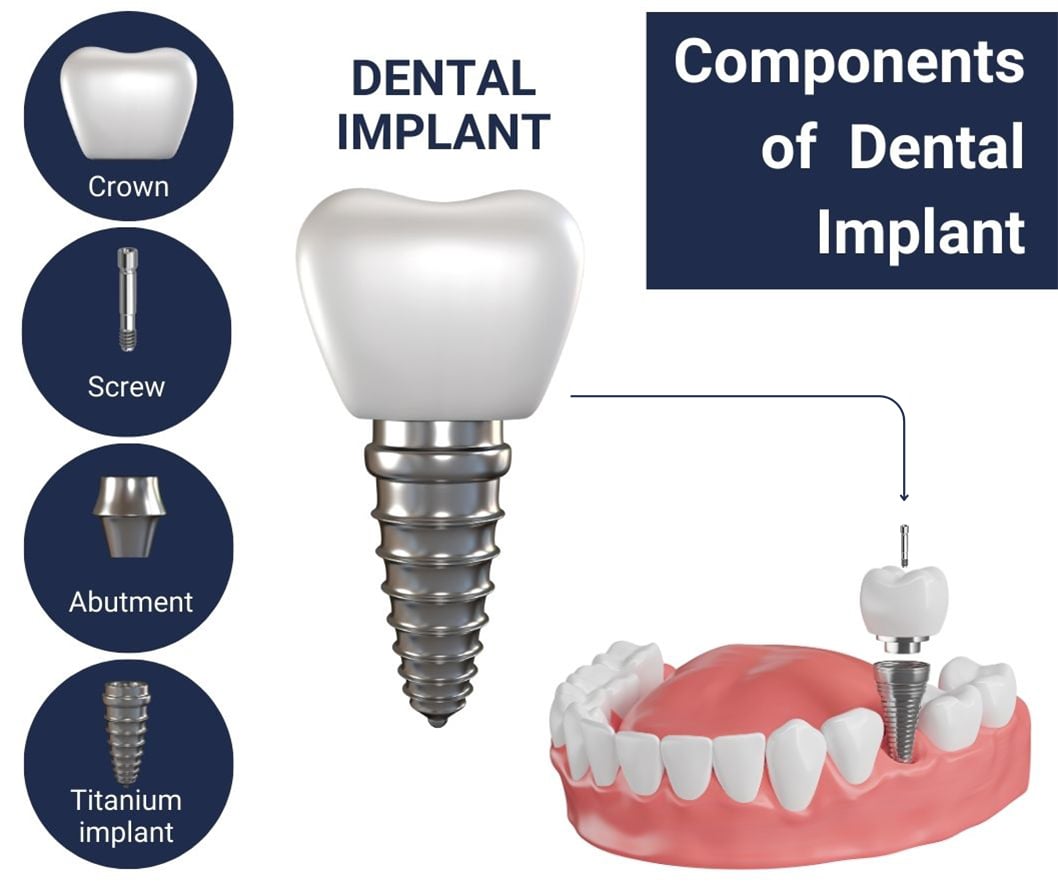
What Is Dental Implant?
A dental implant is a structure made of alloplastic materials which is used to support one or more false teeth. These are implanted into the oral tissues beneath the mucosa and/or periosteum and/or within or through the bone to provide retention and support for a fixed or removable dental prosthesis. Dental implants are surgically placed in your jawbone, where they serve as the roots of missing teeth.
In general, dental implants may be right for you if you:
- Have one or more missing teeth
- Have a jawbone that’s reached full growth
- Have adequate bone to secure the implants or are able to have a bone graft
- Have healthy oral tissues
- Don’t have health conditions that will affect bone healing
- Are unable or unwilling to wear dentures
- Want to improve your speech
Surgical Protocols: -
There are three surgical approaches which are in use over the years:
– Two-stage
– One-stage
– Immediate-loading.
The two-stage surgical procedure :In the first stage, the implant is surgically placed below the soft tissue after drilling into the bone. Usually osseointegration takes 2 to 3 months for mandible and 3 to 6 for maxilla. During osseointegration, natural jaw bone will strengthen and grow around the dental implant. This keeps it firmly in place, so it can function as the artificial tooth’s root. During the second stage of surgery, soft tissues are reflected and a permucosal element or abutment is placed for gingival collar formation. The gum tissue will then contour around the abutment which may take several weeks to heal. Once healing is complete, an impression is made so that permanent replacement of tooth or teeth can be done.
In one-stage surgical approach, the implant body in the bone and the abutment both are placed simultaneously until osseointegration has occurred.
The immediate-restoration approach the implant body and the prosthetic abutment are placed at the initial surgery, and restoration (mostly transitional) is then attached to the abutment.
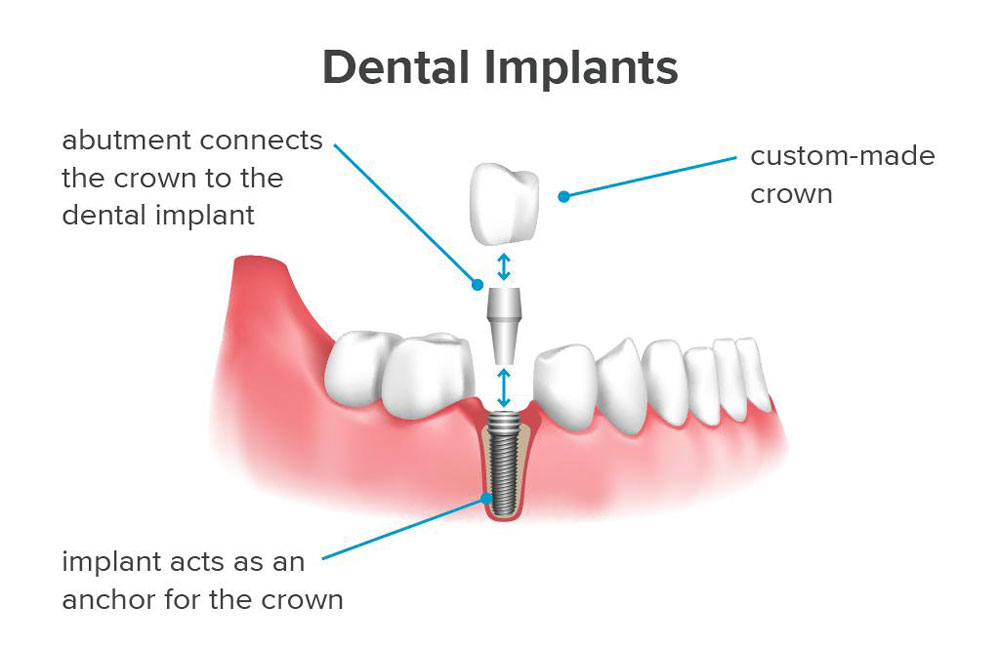
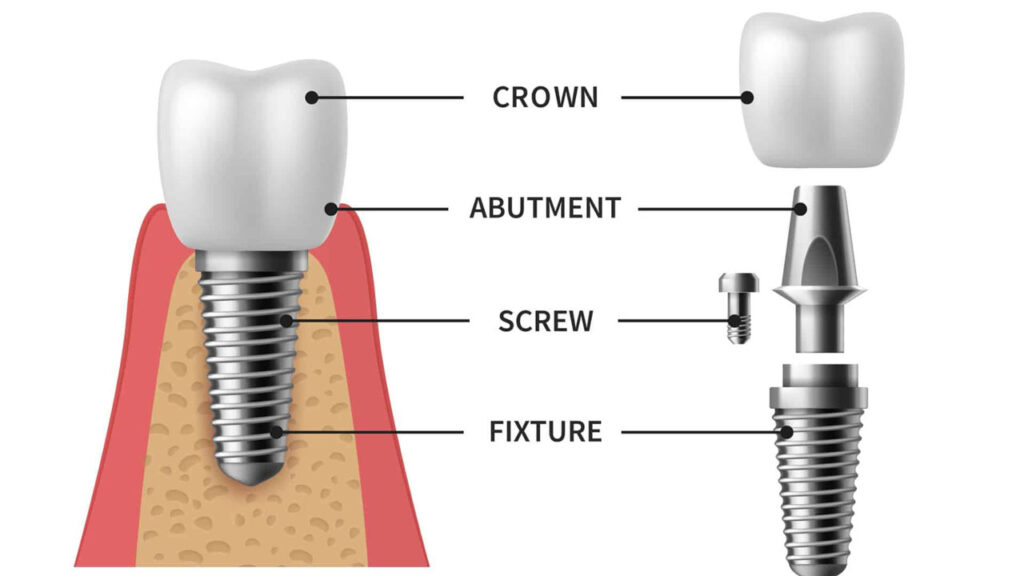
How Long an Implant Last and are They Safe?
Implants are a safe and they are much like natural teeth. Implants will last for long if they are properly taken care.
If they are neglected and proper oral hygiene is not maintained you can have gum infection, bleeding, soreness and general discomfort which you could get with natural teeth also.
If your implants are well looked after, and bone is strong and healthy, you can expect them to last for many years.
Can Multiple Teeth Be Replaced By Implants Or Only Single Implants Are Placed?
You can have any number of teeth replaced with implants – from one single tooth to a full mouth rehabilitation is possible.
Can Implants Be Used In Every Condition Where Teeth Are Missing?
It depends on medical status and condition of the bone in jaw. There are a number of special tests and latest x-ray technology to find out the amount of bone still there. If there is not enough bone or if it isn’t healthy enough, then bone augmentation procedures are undertaken to place implants.
What Will Happen To Implant If I Have An Accident?
Implants and the teeth they support can be damaged by an accident in the same way that natural teeth can. So it is advisable to wear a professionally made mouthguard while playing sports that involve contact or moving objects.
If just the teeth are damaged, they can usually be removed from the implant and can be replaced by new crown. However, if the titanium implant itself is damaged beyond repair, it can be safely left in the jaw if it is too difficult to remove. Another implant may be fitted alongside it to replace the damaged one.
Risks Associated with Dental Implant Systems:
- Implant body failure (looseness of the implant body)
- due to systemic infection, which may be more likely in patients with uncontrolled diabetes
- due to local infection in bone and gums supporting the implant body
- due to delayed healing, which may be more likely in patients who smoke
- Post-surgical numbness due to nerve impingement or damage
- An opening of the incision following surgery
- Exposure of the implant above the gumline


